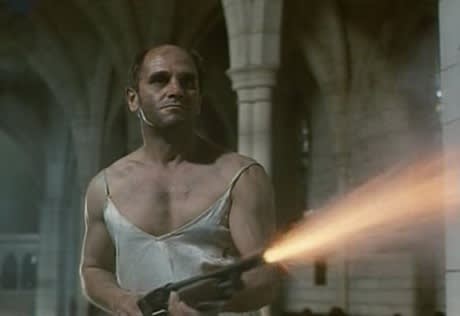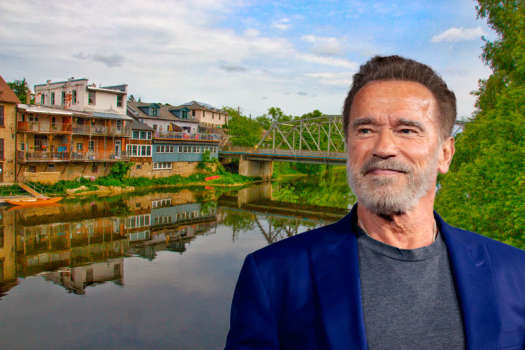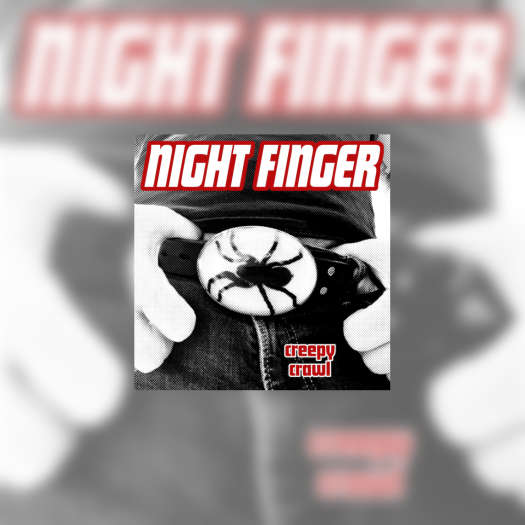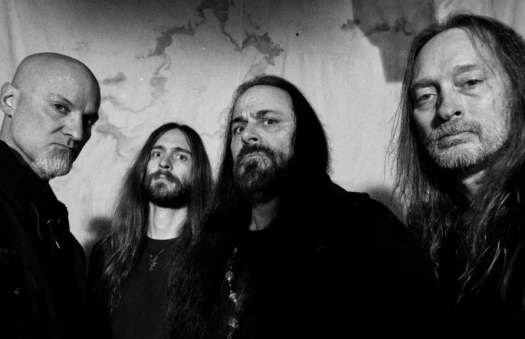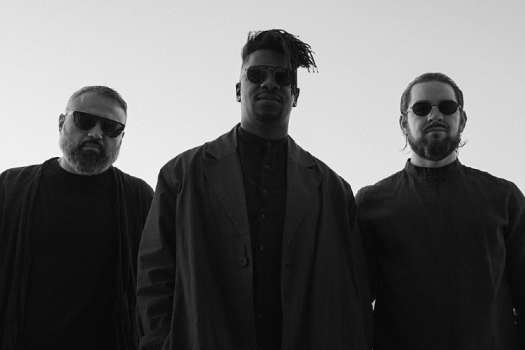This Kiwi apocalypse story from 1985 preys on the conflicting fear and appeal of loneliness in a slow burning science fiction mystery inspired by multiple sources. A novel of the same name from '81 by Craig Harrison provides much of the core story.
A scientist by the name of Zac Hobson awakens one day to find his city of residence deserted. Likewise barren of life signs, neither the radio nor the television has any answers to offer. Exploring the city, Hobson comes across a downed jetliner in the street but finds no bodies. He makes his way to the lab he works at and discovers that there's been a malfunction with "Project Flashlight," which was intended to provide a global energy grid. After escaping the irradiated laboratory, Hobson becomes convinced that whatever went wrong must be responsible for the mass disappearances and dubs it, "The Effect."
As Hobson settles in and begins to enjoy his predicament – moving into a fancy mansion, looting department stores and leaving messages all around town for any other potential survivors – the influence of Richard Matheson's fantastic short story I Am Legend is evident. That referential nod has come full circle.
A later scene where the increasingly unstable loner sets up a bunch of cut-outs of people to address and engage, was echoed in the recent ideologically gelded I Am Legend remake starring Will Smith. More than that though, and even more than the book on which it's based, The Quiet Earth draws influence from the 1959 film "The World, The Flesh, and the Devil" written and directed by Ranald MacDougall and starring Harry Belafonte.
It's from that film that Geoff Murphy borrows relationship dynamics integral to his examination of hubris and the basic human need for connection. The racial and sexual tensions of MacDougall's progressive earlier film are reversed—presumably to be more directly identifiable to a white male audience—but the oblique central mystery still provokes a lot of thought.
It's hard to get too deep into the plot without spoiling significant surprises vital to the film's impact but suffice to say, New Zealand's most celebrated offering to apocalyptic cinema is more intellectually stimulating than it is wowing, leaning on stiff, but ideologically impassioned, characters questioning the reliability of perception in the tradition of Phillip K. Dick, as well as an open-ended conclusion that can be interpreted as scientific, religious, or some combination of both.
For patient viewers, The Quiet Earth's low-key consideration of isolation anxiety is a rewarding piece of philosophical science fiction.
The Quiet Earth screens at the TIFF Bell Lightbox as part of the Countdown to Armageddon screening series at 9pm on December 19th, 2012.
(CinePro)A scientist by the name of Zac Hobson awakens one day to find his city of residence deserted. Likewise barren of life signs, neither the radio nor the television has any answers to offer. Exploring the city, Hobson comes across a downed jetliner in the street but finds no bodies. He makes his way to the lab he works at and discovers that there's been a malfunction with "Project Flashlight," which was intended to provide a global energy grid. After escaping the irradiated laboratory, Hobson becomes convinced that whatever went wrong must be responsible for the mass disappearances and dubs it, "The Effect."
As Hobson settles in and begins to enjoy his predicament – moving into a fancy mansion, looting department stores and leaving messages all around town for any other potential survivors – the influence of Richard Matheson's fantastic short story I Am Legend is evident. That referential nod has come full circle.
A later scene where the increasingly unstable loner sets up a bunch of cut-outs of people to address and engage, was echoed in the recent ideologically gelded I Am Legend remake starring Will Smith. More than that though, and even more than the book on which it's based, The Quiet Earth draws influence from the 1959 film "The World, The Flesh, and the Devil" written and directed by Ranald MacDougall and starring Harry Belafonte.
It's from that film that Geoff Murphy borrows relationship dynamics integral to his examination of hubris and the basic human need for connection. The racial and sexual tensions of MacDougall's progressive earlier film are reversed—presumably to be more directly identifiable to a white male audience—but the oblique central mystery still provokes a lot of thought.
It's hard to get too deep into the plot without spoiling significant surprises vital to the film's impact but suffice to say, New Zealand's most celebrated offering to apocalyptic cinema is more intellectually stimulating than it is wowing, leaning on stiff, but ideologically impassioned, characters questioning the reliability of perception in the tradition of Phillip K. Dick, as well as an open-ended conclusion that can be interpreted as scientific, religious, or some combination of both.
For patient viewers, The Quiet Earth's low-key consideration of isolation anxiety is a rewarding piece of philosophical science fiction.
The Quiet Earth screens at the TIFF Bell Lightbox as part of the Countdown to Armageddon screening series at 9pm on December 19th, 2012.
